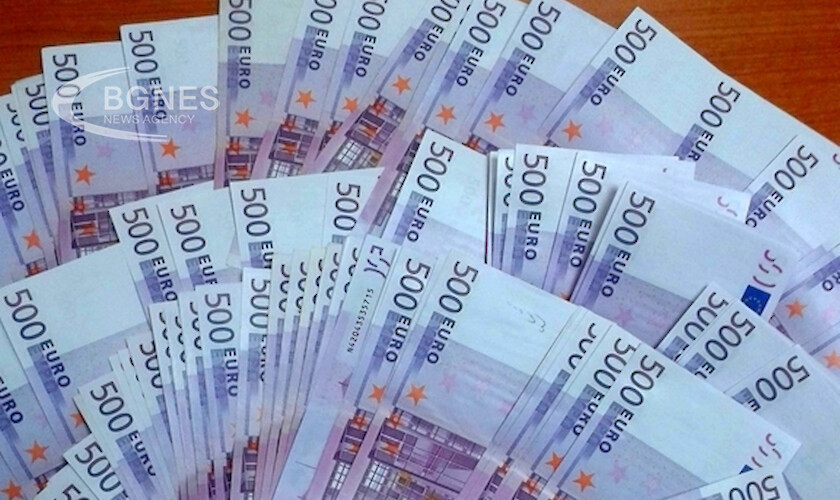Modern Diplomacy: Bulgaria is in a hurry to adopt the euro, but the difficulties are many
As it pursued EU membership in the early 2000s, Sofia began debating about its eventual accession to the Eurozone. And, to be truthful, the number of experts and politicians who are at least somewhat hesitant is not small. Moreover, no country has adopted the common currency since 2015, when Lithuania scrapped its currency after its Baltic neighbours. Against the background of Brexit and the pandemic-induced, double-dip recession, it is hard to imagine the stall ending right now.

Yet, Bulgaria has a standing commitment to adopt the common European currency affirmed in the 2007 Accession Treaty. Hence, many say that the country remains in the Eurozone’s waiting room without a clear path to get out.
The National Plan for the Introduction of the Euro
But with its National Plan for the Introduction of the Euro (NPIE), Bulgaria is trying to flip the table. According to the document, Bulgarians will go through only one month of adjustments before being unable to use the Lev. This means that the Euro and the Lev will both be legal tenders in the country for a mere month. The only help for consumer will be the use of double-currency price tags for five more months.
According to this tight schedule, Bulgaria would need to consolidate its public finances in the next biennium. In fact, before a country can adopt the common currency it ought to stick to a few strict macroeocomic criteria. In particular, the candidate needs to prove that its currency is stable and its public finances sound. Fortunately for Bulgaria, exchange rates are not a concern thanks to the peculiar currency board it adopted in 1997.
Inflation: Soon to become a challenge again
Foremost, one of the hardest criteria for a country like Bulgaria to meet is that relating to inflation. In fact, allowing a country where prices increase too fast to join may destabilise its peers and weaken the Euro.In technical terms, the country’s 12-months average inflation rate (year-on-year) should be contained under the so-called reference value. Namely, the reference value equals the average of three smallest inflation rates amongst EU countries plus 1.5 percentage points. Significantly, using data for March 2021, Bulgaria offshoots the target by a mere 0.066%. In fact, now Bulgaria meets the criteria comfortably, as its 12-month average inflation is 0.13% lower than the reference threshold. As a matter of fact, before the pandemic, Bulgaria’s inflation exceeded the threshold by 0.67%. Therefore, one should expect Sofia’s difficulty in recovering from the crisis to recrudesce in persistent inflation overshooting.
Budget deficit: A heredity of the pandemic
Another, perhaps better-known, ‘convergence criteria’ deals with budget deficits and surpluses, or more specifically to their ratio to GDP. Hence, the State has to cover the missing amount by means other than fiscal revenues. In the last two decades, thanks to its rapid-growing economy Bulgaria has managed to respect this target.
Historical data show that Bulgaria’s budget deficit-to-GDP ratio has been constantly in the acceptable range between 2009 and 2019. Apparently, this suggests that Bulgaria should have no particular problem in managing to meet this requirement. But the pandemic-induced recession has changed this simple fact dramatically. In fact, the latest data for 2020 show a deficit around -3.4% — which is still better than the Eurozone’s -7.4%. And all forecasts suggest that the stat of Bulgarian public finances’ health is only going to worsen.
Public debt: The upcoming test
Adoption of the Euro is contingent on a country’s debt-to-GDP ratio being below the 60% limit as a general rule. Clearly, the data show that for Bulgaria it will be hard to miss on the debt-to-GDP target anytime soon. Nevertheless, as indicated in the previous paragraphs, the pandemic-induced recession has worsened the country’s publica finances significantly. If anything, Bulgaria is already on the verge of asking the markets for several billion euros in loans in 2021. Thus, if the deficit does not get under control soon and GDP growth does not restart, the debt will rise. But, to join the Eurozone, a country’s 10-year security should pay no more than the EU’s reference value.
Beyond the numbers: The domestic and international political consequences
On this regard, it is foundational that the Coordination Council for Preparation of the Republic of Bulgaria for Eurozone Membership which prepared the NPIE sat under the joint chairmanship of the Governor of the Bulgarian National Bank (BNB), Dimitar Radev, and the caretaker Minister of Finance, Asen Vassilev. Considering that the current cabinet and the BNB have previously been on the odds this is a rather good sign. In fact, by means of Radev’s presence, the BNB signalled its practical, immediate availability to move forward with the NPIE. Тhe country needs to build a sincere, nation-wide agreement on the acceptability of the connected, painful sacrifices. Otherwise, as other weaker economies that joined the Eurozone without educating their populaces beforehand, Bulgaria risks suffering massive setbacks. Nevertheless, it is in the EU’s best interest to help Bulgarian authorities in forging this nation-wide consensus. After long years of failures, delays and internal fragmentation, Bulgaria’s adoption of the Euro may finally revert the tide. Not least, such an achievement has the potentiality to restore other Balkan countries’ confidence in the EU. Therefore, one may dream of Bulgaria joining the Eurozone as resuscitating commitment to and reviving the drive towards enlargement. /BGNES




